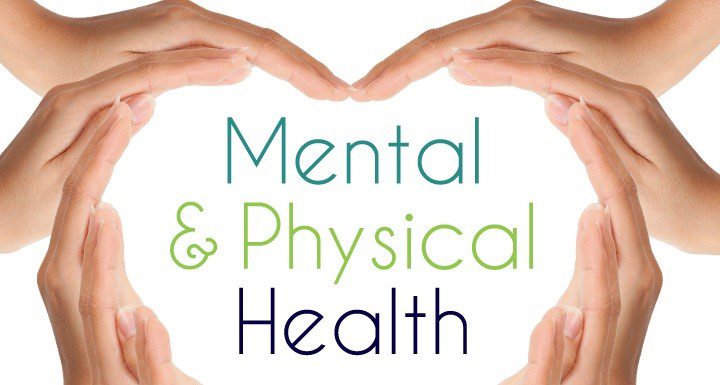In the intricate tapestry of human wellness, the threads of physical and mental health are intricately woven together to create a harmonious balance. The undeniable link between the two has long been recognized, yet the depth of their interconnectedness continues to fascinate experts and researchers alike. From the impact of exercise on mood to the role of stress in triggering physical symptoms, the relationship between our bodies and minds is a complex and dynamic dance. Join us as we delve into the fascinating world of the connection between physical and mental health, exploring the ways in which these intertwined aspects of our well-being shape our daily lives.

Understanding the Mind-Body Connection
Our physical health and mental well-being are intricately connected, with each directly impacting the other. The mind-body connection is a powerful phenomenon that has a profound influence on our overall health and quality of life. Understanding this connection is essential for achieving balance and harmony in both our physical and mental realms.
When we prioritize our physical health through regular exercise, proper nutrition, and adequate rest, we also support our mental health. Physical activity releases endorphins, the body’s natural feel-good chemicals, which can help reduce symptoms of stress, anxiety, and depression. Similarly, a healthy diet rich in nutrients can fuel our brain and improve our mood and cognitive function.
Conversely, our mental health can also impact our physical well-being. Chronic stress, negative thought patterns, and unresolved emotional issues can manifest as physical symptoms such as headaches, digestive issues, and muscle tension. By addressing our mental health through practices like mindfulness, therapy, and stress management techniques, we can alleviate these physical symptoms and enhance our overall health.
The Impact of Physical Health on Mental Well-being
Our physical health and mental well-being are intricately connected, with one significantly impacting the other. When we prioritize our physical health, we are also taking care of our mental health. Regular exercise, a balanced diet, and sufficient sleep can all contribute to a healthier mind.
Physical activity releases endorphins, often referred to as the “feel-good” hormones, which can help alleviate feelings of stress, anxiety, and depression. Eating nutritious foods provides our brains with the necessary nutrients to function optimally, while proper rest allows our minds to recharge and reset.
Conversely, neglecting our physical health can have detrimental effects on our mental well-being. Poor lifestyle choices, such as a sedentary lifestyle, unhealthy diet, or lack of sleep, can contribute to increased feelings of low mood, fatigue, and overall decreased mental functioning.
In conclusion, it is crucial to recognize the vital connection between physical and mental health. By taking care of our bodies, we are also nurturing our minds and promoting overall well-being. Remember, a healthy body leads to a healthy mind.
Strategies for Improving Both Physical and Mental Health
It is crucial to recognize the strong connection between physical and mental health, as one greatly impacts the other. By incorporating strategies that address both, individuals can experience an overall improvement in their well-being.
First and foremost, regular exercise plays a significant role in enhancing both physical and mental health. Physical activity not only strengthens the body but also releases endorphins that help reduce stress and improve mood. This can include a variety of activities such as yoga, running, weight lifting, or even dancing.
Alongside exercise, maintaining a balanced diet is essential for promoting overall health. Consuming a variety of nutritious foods provides the body with the necessary nutrients to function optimally, while also supporting brain health. Incorporating fruits, vegetables, whole grains, and lean proteins into meals can have a positive impact on both physical and mental well-being.
Holistic Approaches to Wellness
Living a healthy life involves more than just taking care of your physical body. The connection between physical and mental health is a crucial aspect of overall well-being. When our bodies are in good shape, our minds are often in a better state, and vice versa. It’s important to address both aspects to achieve holistic wellness.
Here are some ways in which physical and mental health are interconnected:
- Exercise: Regular physical activity not only benefits our physical health but also releases endorphins that help improve our mood and reduce stress levels.
- Nutrition: Eating a balanced diet provides our bodies with the nutrients needed for optimal functioning, which in turn can positively impact our mental well-being.
- Sleep: Getting enough rest is crucial for both our physical and mental health. Lack of sleep can lead to increased stress, mood swings, and cognitive impairment.
| Physical Health | Mental Health |
|---|---|
| Regular exercise | Improved mood |
| Healthy diet | Reduced stress levels |
| Adequate sleep | Enhanced cognitive function |
In conclusion, it is clear that the link between physical and mental health is a powerful and complex one. Our bodies and minds are interconnected in ways that we are only beginning to understand. By nurturing both our physical and mental well-being, we can achieve a more balanced and fulfilled life. So let us remember to take care of ourselves holistically, knowing that our physical and mental health are deeply intertwined. Thank you for joining us on this exploration of the vital connection between mind and body. Stay well, stay healthy, and stay connected.
